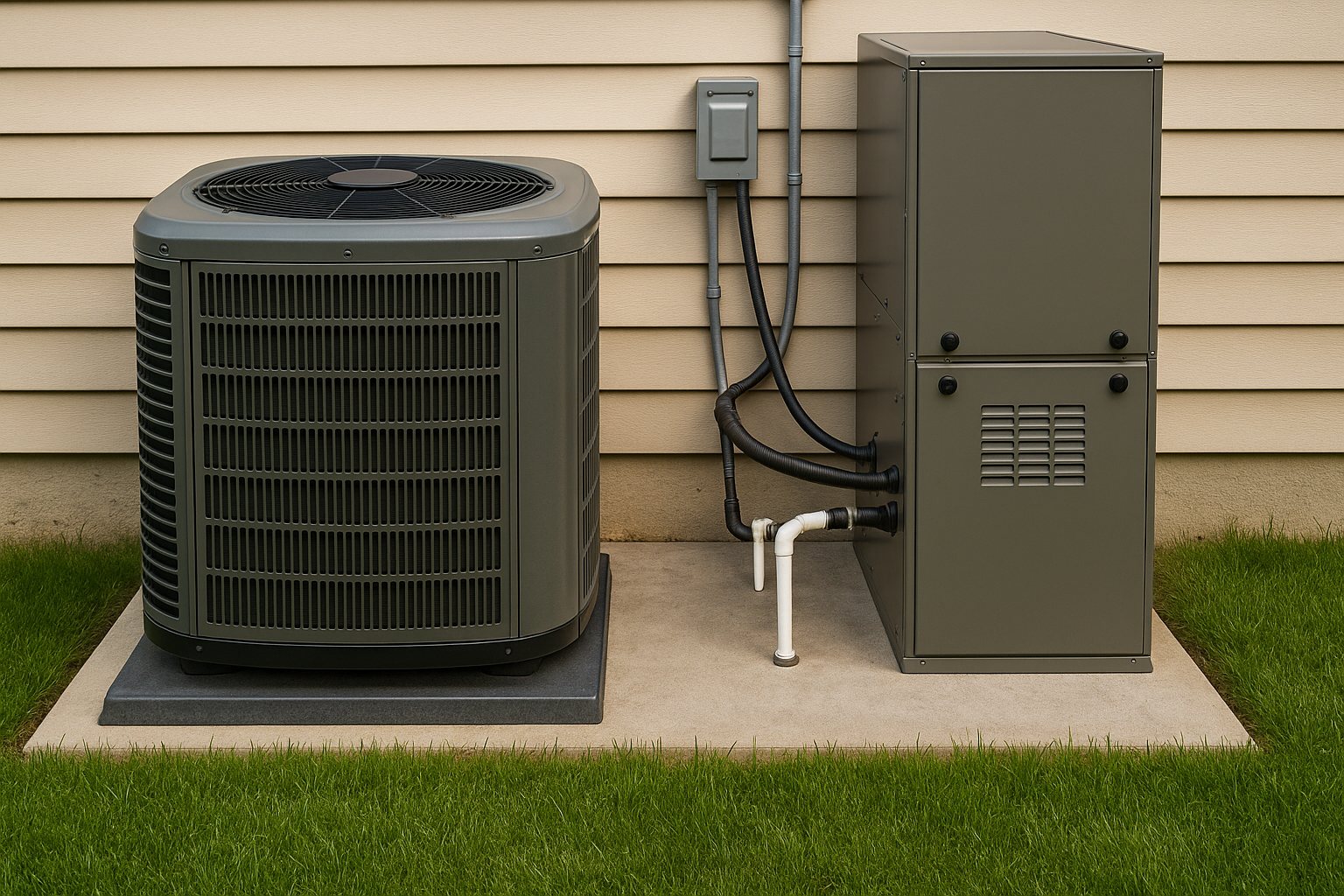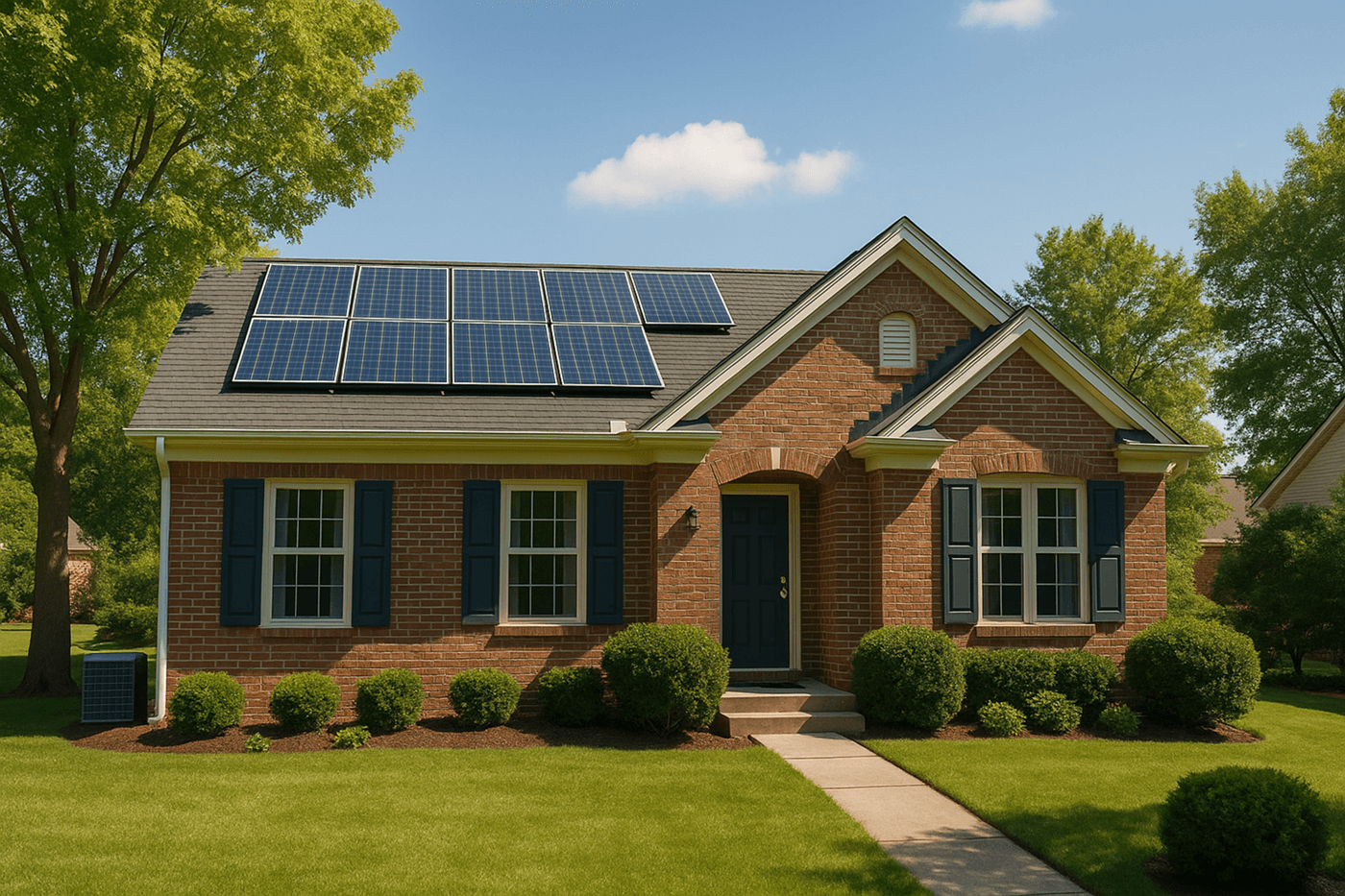Whether you’re replacing an old system or installing one for the first time, knowing what to look for makes all the difference. In this article, we’ll walk you through how to choose the right HVAC system by breaking down your options, what to consider, and how to make a decision that fits your needs and budget.
Why Your HVAC Choice Matters
Heating and cooling account for nearly 50% of a typical U.S. household’s energy use, according to the U.S. Department of Energy. That means the different HVAC system you choose directly impacts your monthly bills, your home’s comfort level, and even your carbon footprint.
If you live in a colder climate, a strong heating component is essential. In hotter states, a high-efficiency central air conditioner might be your best friend. And if you deal with both extremes? There’s a system for that too.
Types of HVAC Systems to Consider
When choosing the right HVAC units for your home, start by understanding the most common HVAC system types available:
Central Air Conditioning
- Best for homes with existing ductwork
- Provides whole-house cooling
- Often paired with a furnace for heating
Heat Pumps
- Air Source Heat Pumps: Transfers heat between your home and the outside air
- Geothermal Heat Pumps: Uses underground temperatures for more efficient heating/cooling
- Great for moderate climates
Ductless Mini-Split Systems
- Ideal for homes without ductwork or for room additions
- Allows zoned temperature control
- Quiet and energy-efficient
Furnaces and Boilers
- Furnaces use gas, oil, or electricity to heat air distributed through ducts
- Boilers heat water for radiant heating via radiators or floor systems
Hybrid Systems
- Combines a heat pump with a traditional furnace
- Automatically switches to the most efficient option based on outdoor temperature

Factors That Influence Your HVAC Decision
Every home is different, and the “best” HVAC system depends on several personal and structural factors:
1. Home Size and Layout
- Larger homes may need new HVAC systems with greater capacity
- Open floor plans vs. multiple enclosed rooms can affect airflow
2. Climate Zone
- Northerners may need stronger heating, while Southerners prioritize cooling
- Humidity control is especially important in coastal and swampy areas
3. Energy Efficiency
- Look for high SEER (cooling system) and AFUE (heating) ratings
- ENERGY STAR® certified systems offer better efficiency and potential rebates
4. Budget
- Consider potential cost savings versus long-term energy savings
- High-efficiency systems cost more initially but can pay off over time
5. Existing Ductwork
- Retrofitting ducts can add to your total cost
- Ductless systems are often more cost-effective in older homes without vents
Sizing It Right
Getting the right size HVAC system is crucial. A unit that’s too large will cycle on and off too quickly, leading to wear and tear and higher energy bills. An existing HVAC system that’s too small will constantly run, trying (and failing) to keep up.
Professional installers use something called a Manual J Load Calculation to assess your home’s exact heating and cooling needs. This considers insulation, window size, local climate, and more.
Features That Boost Comfort and Efficiency
Smart Thermostats
- Allow scheduling, remote control, and usage tracking
- Help reduce energy waste when you’re not home
Zoning Systems
- Divide your home into zones with individual air temperature control
- Especially useful for multi-story homes or additions
HEPA Filters and Air Quality Add-ons
- Trap more allergens and dust
- Good for families with allergies or asthma
Don’t Skip the Maintenance
Even the best HVAC system won’t last long if it’s not maintained. Make sure to:
- Replace or clean air filters every 30 to 90 days
- Schedule seasonal tune-ups before summer and winter
- Check vents and ductwork for signs of mold or buildup
Work With a Pro
This isn’t a DIY decision. A qualified HVAC contractor can:
- Perform accurate load calculations
- Recommend energy-efficient options
- Identify possible rebates or incentives
- Install the modern HVAC system safely and correctly
Always get at least two quotes, compare warranties, and check reviews before choosing a provider.
Future-Proof Your Comfort
If you plan to stay in your home for a while, think ahead:
- Want to add solar later? Choose a solar-ready system.
- Building a smart home? Make sure your HVAC integrates with it.
- Hoping to sell? Energy-efficient systems can boost resale value.
Ready to Breathe Easier?
Choosing the right HVAC system doesn’t have to be complicated. With the right information—and the right contractor—you’ll enjoy a more comfortable, efficient, and healthier home.
Need expert help? The team at D.R. Jordan Plumbing is ready to help you find and install the perfect HVAC solution. Contact us today for a free consultation.





